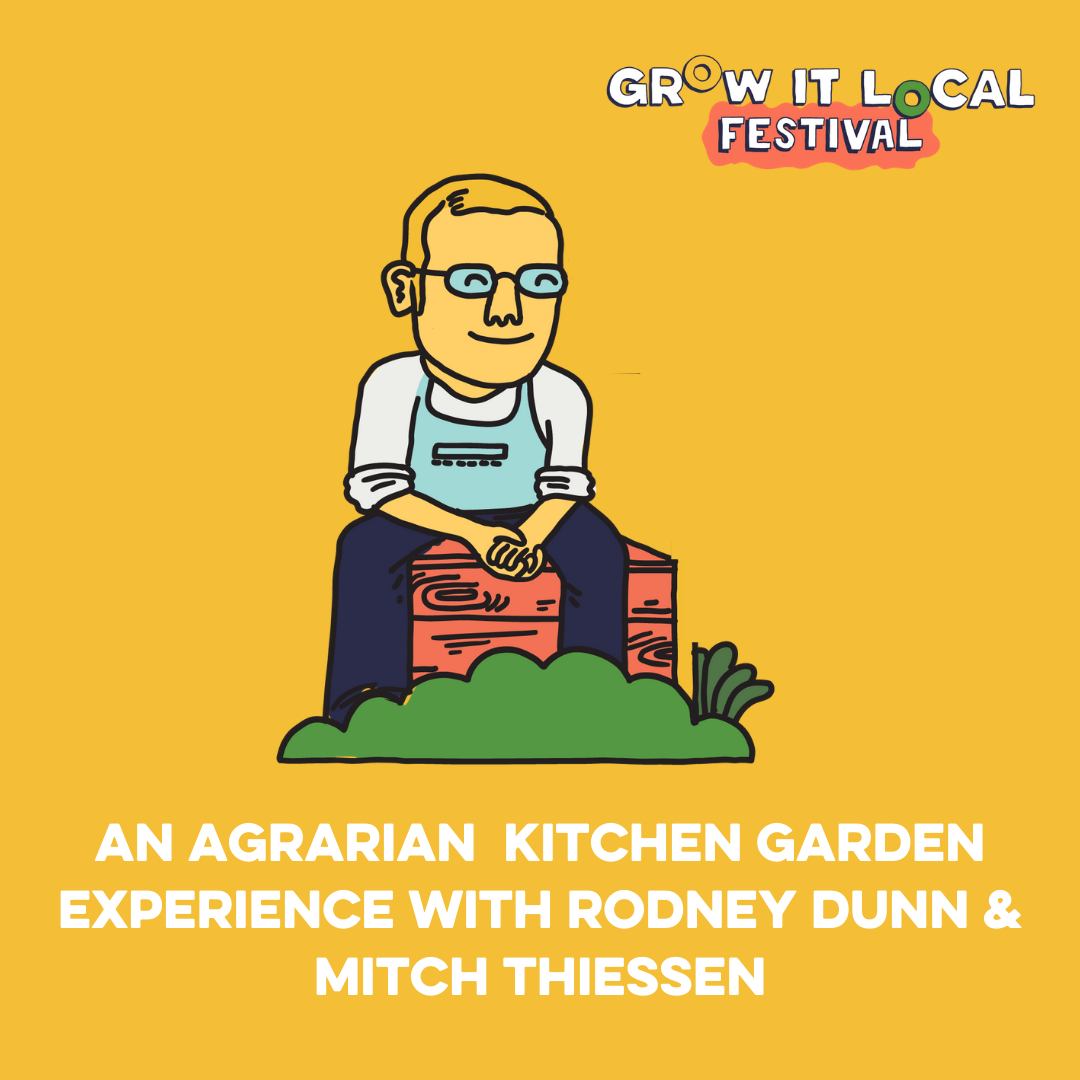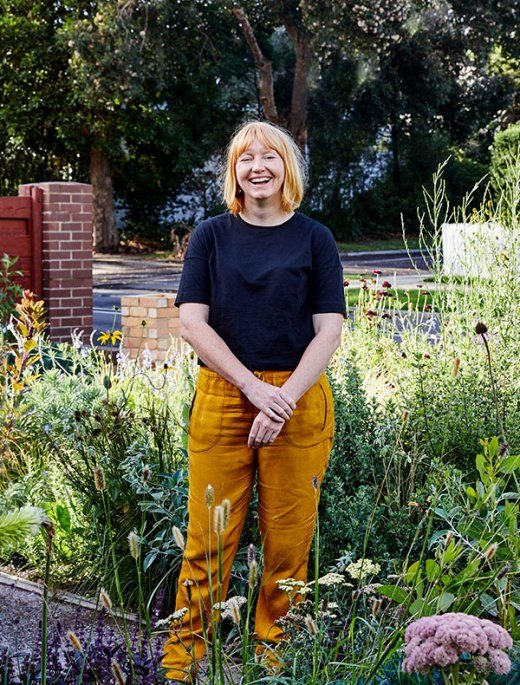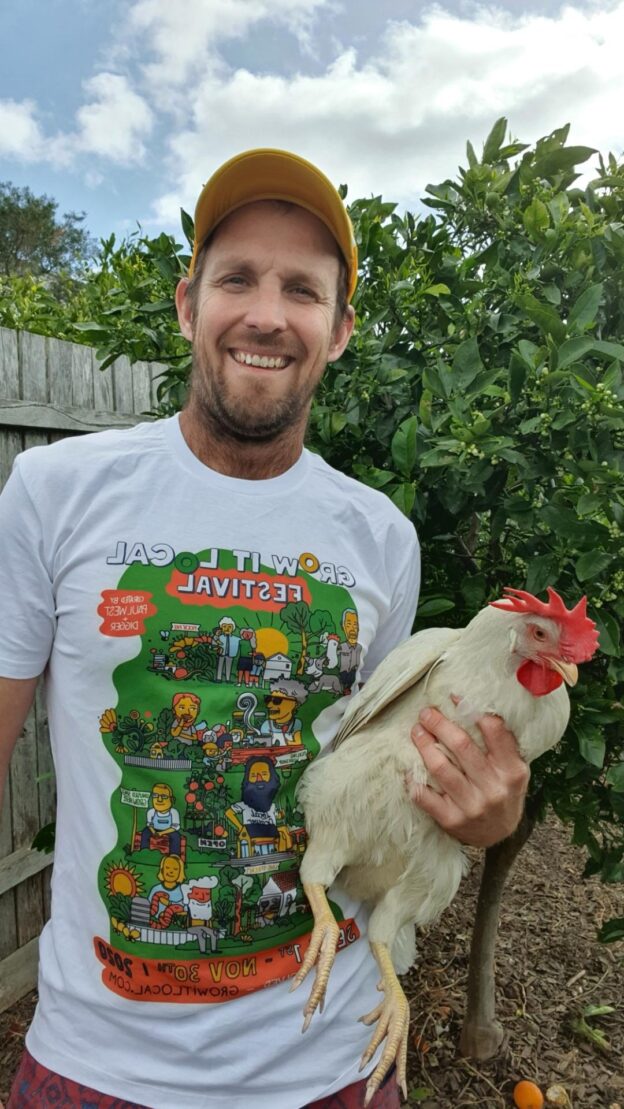Learn to grow microgreens at home, join Grow It Local +
Learn > How To
What’s growing on with Rodney Dunn
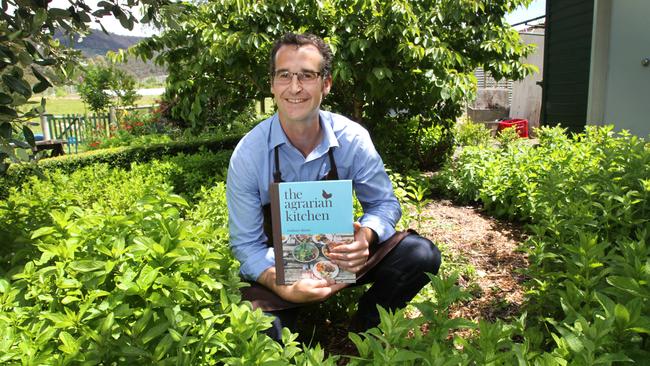
Rodney Dunn is co-founder of The Agrarian Kitchen in Tasmania’s fertile Lachlan Valley. The kitchen garden produces most of the ingredients used in the restaurant and cooking school. Rodney is a former chef, having training under Tetsuya and Gourmet Traveller magazine food editor.
How has life been during the covid-19 lockdown in Tasmania?
From a business point of view the shutdown was really tough. I think the hardest thing was not knowing what the future held, whether we as a business would survive what was outside of our control. It has been really hard for all hospitality businesses and I totally get why some have chosen not to continue. But for us we have such a strong sense of purpose and what we are trying to achieve that to give up was not an option. For us covid-19 has been a chance to stop, regroup and realign our goals. We have implemented a casual takeaway offering, which allowed us to still trade once the lockdown had eased but dining in was not yet allowed. Once were allowed to reopen our dine-in we implemented a set menu, this has been a game changer for us and we feel really allows us to express our agrarian DNA. Previous to this the bustling hectic a la carte menu meant there was little time for us to tell our story to the diners or the time for them to contemplate what they were eating. The new set menu allows us to take our guests on a dining experience that reflects our surrounding environment.
Tassie is such a special place, when did you first visit and what was it that you loved so much? Any memorable food experiences from this trip?
I was lucky enough to visit Tassie back in 2005 when I was working for Gourmet Traveller magazine. I had at the time been living in Sydney for 8 years and was looking a somewhere to grow some food. Tasmania really resonated with me, not only was it breathtakingly beautiful it has wonderful culture of self-reliant food production. I remember on that first trip speaking to a chef who described to me enthusiastically of receiving the first quinces of the season from a local tree or being able to point to a paddock several hundred metres away where the beef he was serving was from. I really wanted to be part of a connected food system, to take my own journey down the path of true flavour discovery.
How did the idea for The Agrarian Kitchen and its philosophy come about?
I had been watching a lot of Hugh Fearnley Whittingstall’s River Cottage program and it had really resonated with me how important how our food is grown was in relation to the quality of flavour on the plate. The old adage “you can’t make a silk purse out of a sow’s ear” has never been truer. As a chef we are always on a search for flavour and for me it made so much sense to be trying to create that flavour at the source, rather than the naïve concept that somehow we as cooks were also magicians that could conjure flavour out of substandard beginnings. The Agrarian Kitchen was born out of that search for flavour and to create a place where that could be shared for others. I wanted to create somewhere I wished I could’ve gone to.
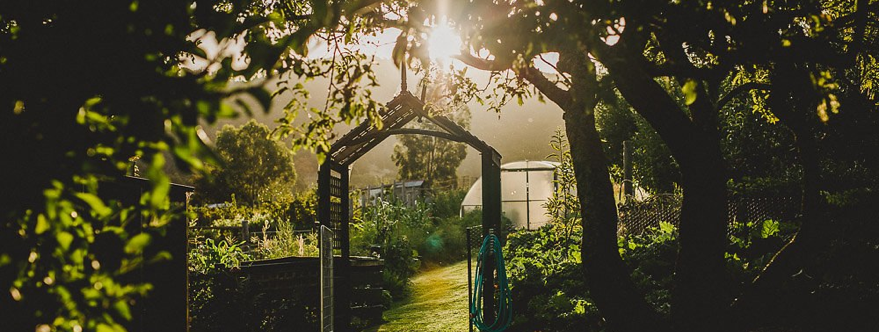
Your kitchen garden is truly exceptional, when did you first start growing food and how do you decide what gets planted each season?
I had very little food growing experience before starting The Agrarian Kitchen, so early on it was very much a trial and error scenario. I read as much as I could and devoured information from every source available. It wasn’t too long into the business we were able to employ a gardener. I have always worked closely with whoever our gardener was to get the balance of produce right and as time has gone by the requirements have changed. Initially the garden was just supplying the cooking classes but when the restaurant opened it mean we could use the excess there. We have made a conscious decision with Mitch, our current gardener, coming on board to increase our levels of production to try and supply the restaurant as much as possible from the garden as well. This allows us to have much greater control over what we are growing as well as how its grown, with a focus on the microbiome of our soils and creating nutrient dense food. In selecting what we will grow a number of factors come into play, one is what grows well for us here in this garden, another is interesting or unusual varieties that the consumer may not have seen or eaten.
What types of seeds do you grow? i.e. organic, heirloom? Any favourites?
The majority of our seeds are heirloom open pollinated varieties and where possible we save our own seed. However, that doesn’t mean we have to limit ourselves to that, if we find an exciting hybrid, we wish to trial then we are open to giving it a go. One thing that has become increasingly evident is how important the quality of the seed is, there is lots of choice available to the home gardener now but the difference in germination rate and quality differs greatly. If for instance parsnip seed is old it will germinate poorly, it’s for this reason we save our own seed. One of our favourites is peas I got from my neighbour called Lacey Lady. She was given it years ago and it’s so good it’s the only shelling pea we grow.
Grow It Local’s mission is to get more Australian’s to grow, share and eat locally grown food. Would you have any advice to anyone who just getting started growing food at home or thinking about buying and eating more local?
It can be incredibly overwhelming to begin the process of growing your own food. My advice is to go easy on yourself start slow with a few pots of herbs. Garner as much information as you can through reading and watching gardening programs. Whilst growing and eating local may be hard to start it is the most immensely rewarding act that will nourish your soul as well as your body. Becoming aware of what food we are buying, where it’s from and how its grown is not only empowering to ourselves it is a vote for clean, local food, each time you buy a local product you are investing in the future of your community.
You’ve established an incredible community of local growers, farmers, fishermen, hunters and foragers through whom much of your ingredients for The Agrarian Kitchen Eatery are sourced. What is it about locally grown / sourced food that is both so appealing and important?
The obvious benefit of local food is its taste, and this is because we are getting it a day, sometimes hours out of the ground. In the case of fruits (including tomatoes, eggplant, pepper, cucumbers etc) they can be harvested when properly ripe as they don’t have to be firm to stand the rigors of long-distance transport. The sugars in fruits are only properly developed at the end of the growing process so even though they will soften they will never sweeten.
The other benefit is the social implications, there is something very comforting knowing who has produced your food, knowing who they are as a person and that your hard earned money will most likely stay in and benefit your local community.
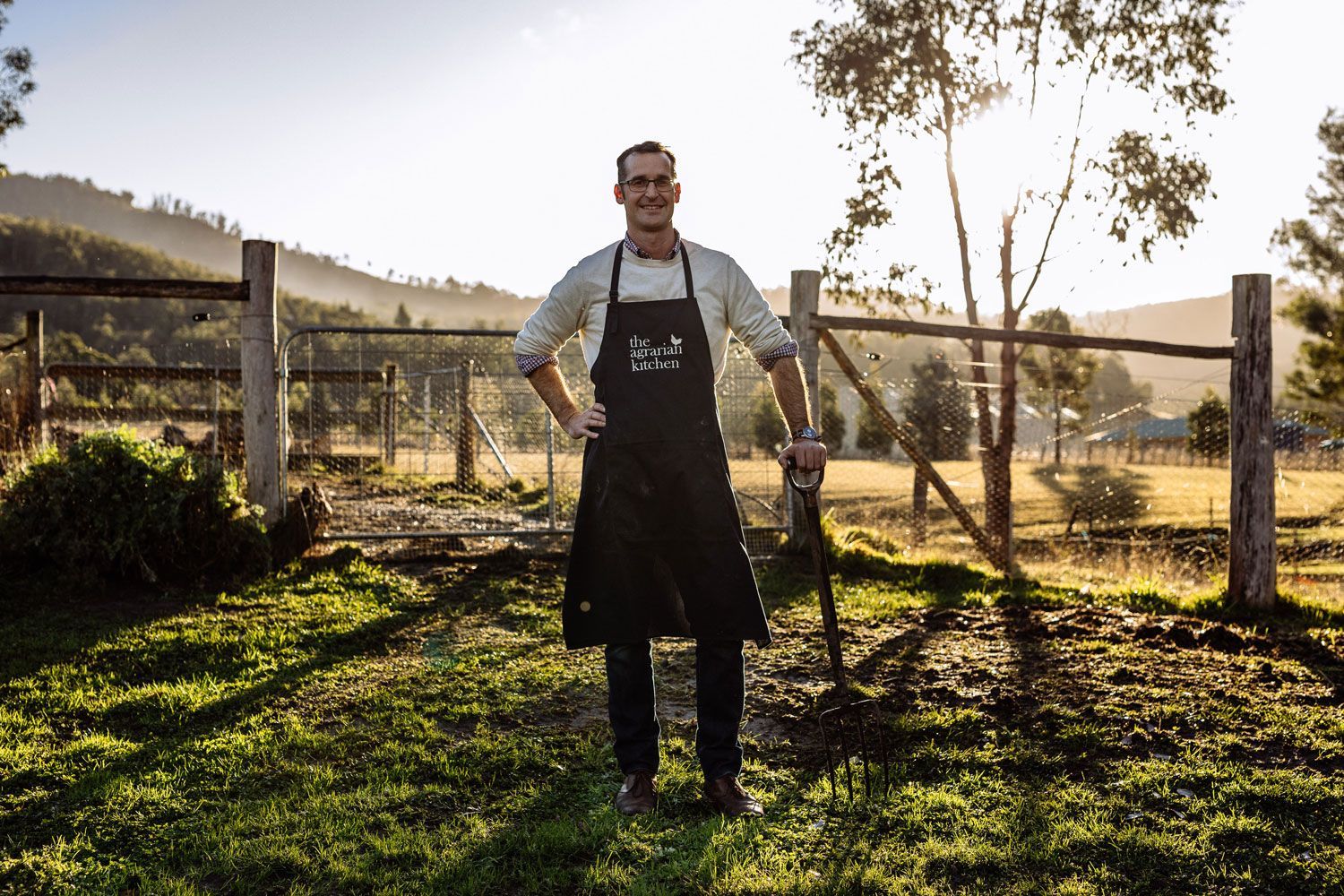
There are big plans for your new garden at the Eatery in New Folk. Can you tell us anything about what’s being planned?
This is incredibly exciting for us. Just behind the restaurant is an acre of walled space that was an old exercise yard. We are just about to begin work on turning this into a walled vegetable garden that will supply the restaurant and cooking school kitchen. Starting a new garden has given us an opportunity to look back over the history of our current garden, to consider our successes and failures and design around that. The opening of this will coincide with our cooking school moving into its purpose designed space in the same building as our restaurant, bringing everything together on the one site. Along with our current cooking classes we will also design and run a range of gardening classes based around growing food.
Your cookbook collection is widely regarded, could you possibly share three of your all-time favourites?
This is a tough one, I have around 900 books in the collection so choosing just 3 is hard but here goes…
· Cooking by Hand by Paul Bertolli
· The art of natural cheesemaking by David Asher
· The Joy of Pickling by Linda Ziedrich
We’re launching a new initiative called ‘music to grow too’ which features 3 songs from each of our guests. Could you tell us 3 songs you think are good for garden?
I am a fan of listening to something invigorating in the garden, if it gets you moving then it should do the same for the plants right?
· Dancing on the ceiling by Lionel Ritchie
· The Whole of the moon by The Waterboys
· Night Moves by Bob Seger
Final question do you cook at home and if so what would be a typical meal with the family?
I keep it fairly simple at home, as those cooking for kids will attest that they can be fussy buggers, so I have to limit things like my growing chilli addiction. Also as with most time is a factor as well. Pasta is a regular feature as it can incorporate whatever’s in the garden. The other is often some roasted meat, chicken or a slow roast lamb shoulder with a simple garden salad and pork fat roast potatoes. I’m a big fan of roasting veg in animal fats, either pork, beef or lamb fat, I always keep a tub of one of these in the fridge for that purpose. Over the years I have become a big fan of eating more vegetables but using meat as a flavouring, tossing the roast veg in the meat juices before serving is a perfect example.
Join us for a truly special session with The Agrarian Kitchen Cooking School & Eatery’s Rodney Dunn and head gardener Mitch Thiessen for a tour of their highly acclaimed edible garden and a conversation about the philosophy, principles and techniques they have adopted in developing this most incredible kitchen garden. Click here for tickets to the Dec 1st session 2020
